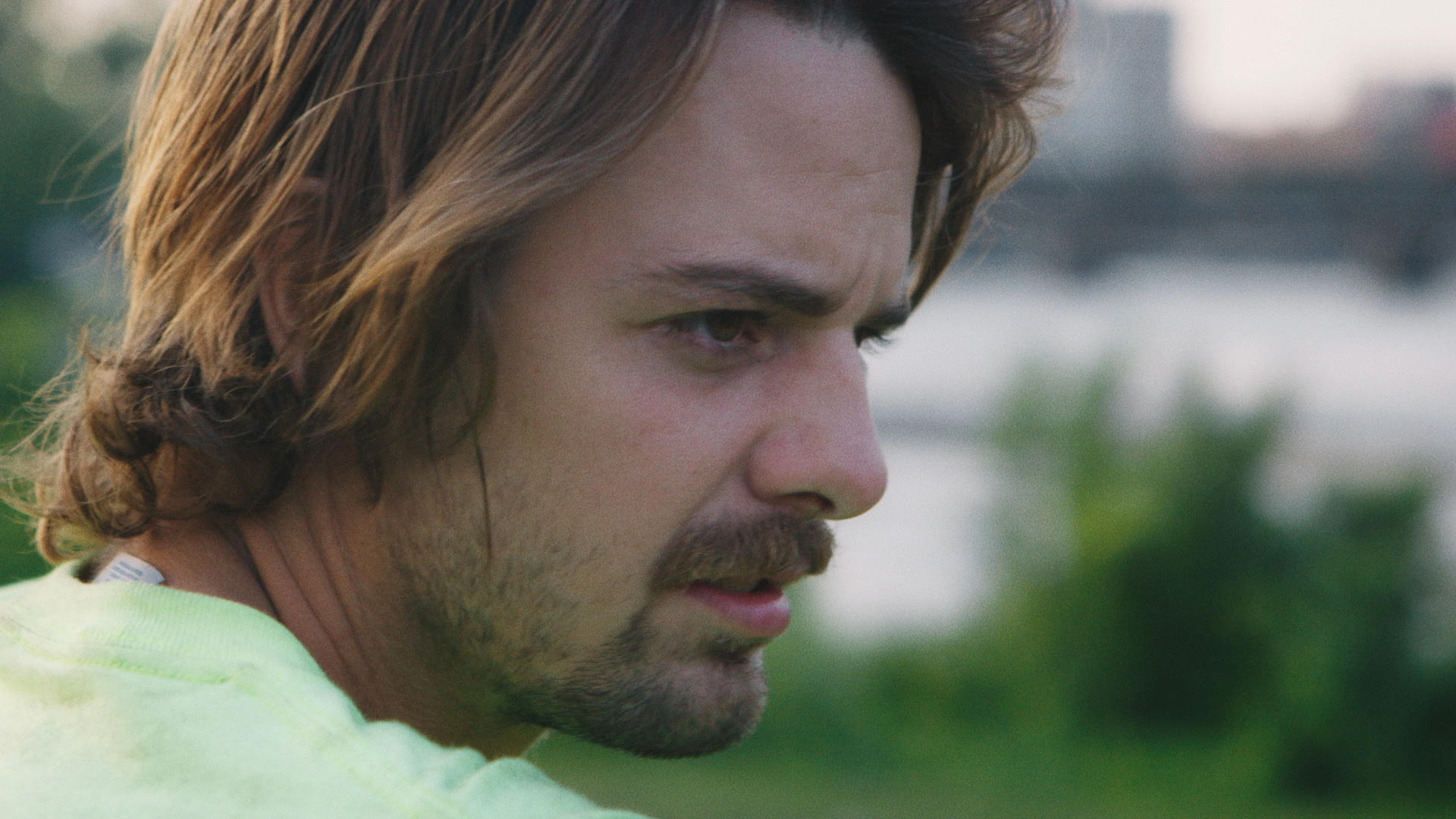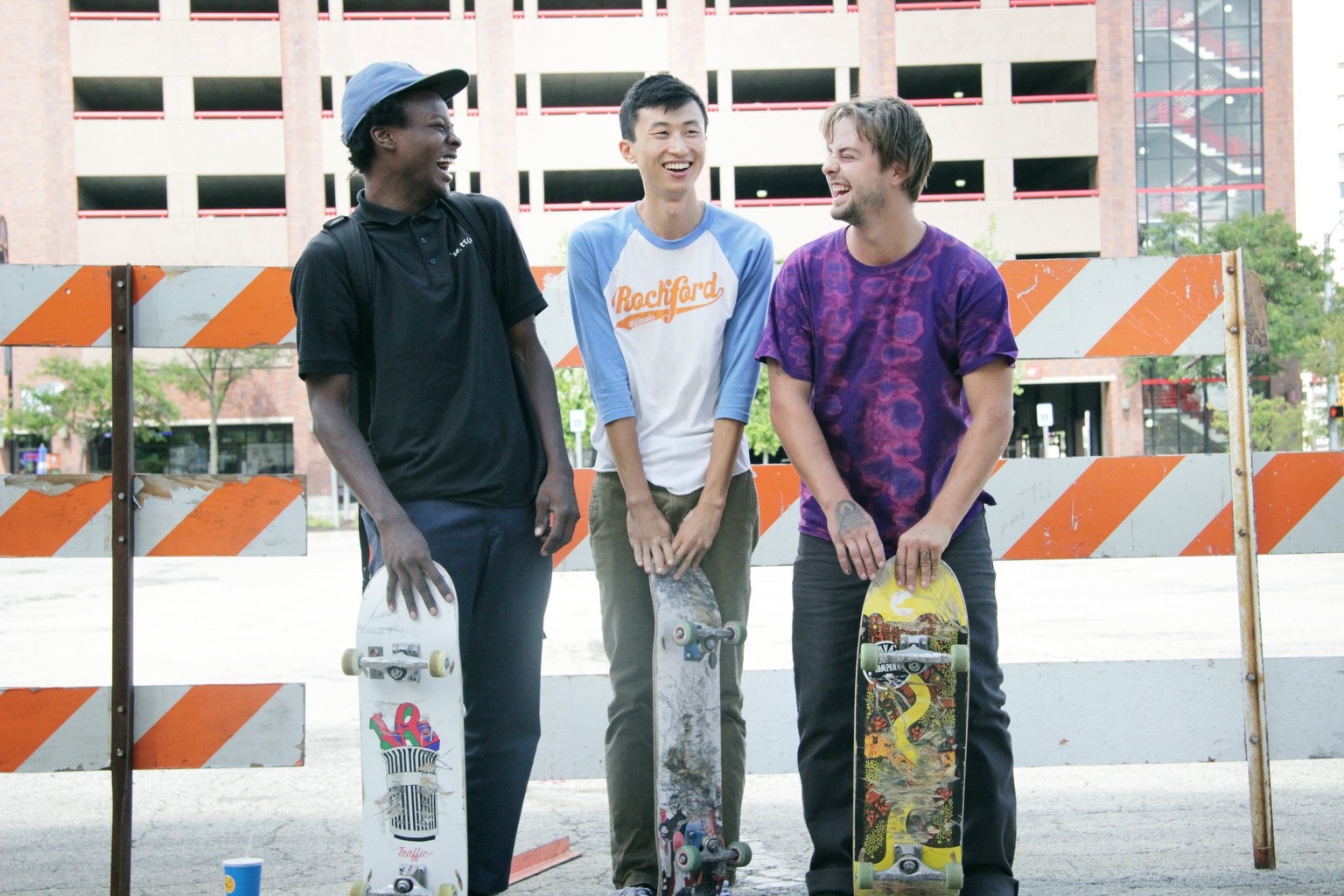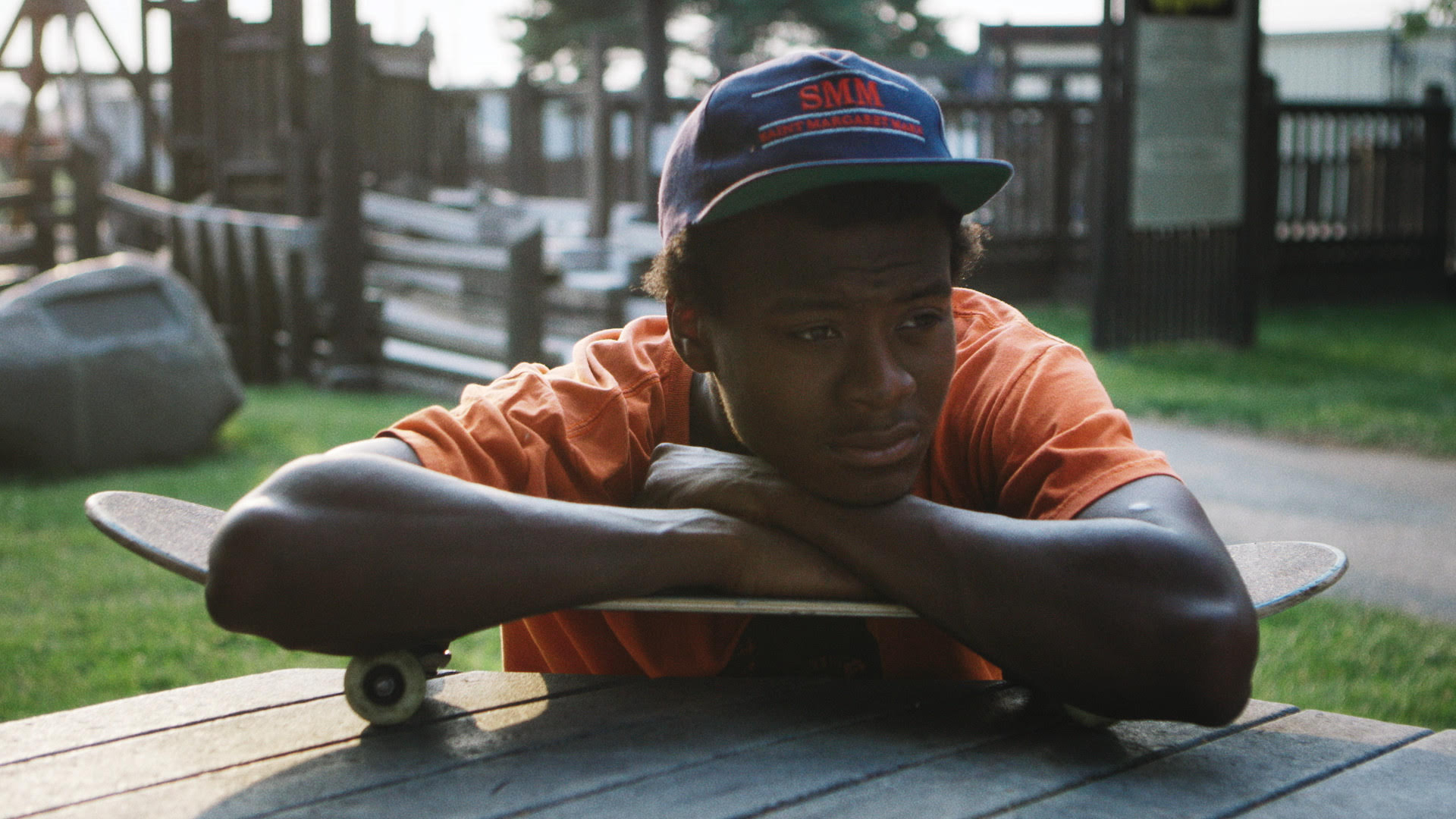Bing Liu is used to big sets. A cameraman on shows like Shameless and Empire, the Chicago-based filmmaker served as an important cog in a massive machine—but when pursuing his own projects, he took a decidedly different approach. With his debut feature, the Hulu-released documentary Minding the Gap, Liu wore almost every hat imaginable on a run-and-gun film set. The result is a tremendously powerful portrait of skateboarding culture in a small Midwestern town, and how that community exists as an analog for our unnerving and confusing modern times.
Focusing on Keire and Zack, a pair of friends and skaters in Rockford, Illinois, Liu subverts the typical tropes of skateboarding flicks by turning traditional montages of mere cruising and rolling into statements on brotherhood, isolation, and loneliness. It’s a story about cycles of abuse and how they proliferate and stick with the abused long after childhood. It’s about not being ready for the responsibilities of adulthood, but having no choice but to face them—dealing with things we don’t know how to, in the best way that we can.
Since its Sundance premiere last January, where the movie won the Special Jury Prize for Breakthrough Filmmaking, Minding the Gap has been hailed as an empathetic look at a humanity slipping through the cracks. Liu is not attempting to save or rescue his subjects, but rather to let them speak with voices they didn’t know they had. We connected with Liu to discuss his first time as director, the influence of Trump’s America on the story he had to tell, and how his work on bigger projects prepared him for his own small triumph.
Can you take me back to the first moment you realized this was the film you wanted to pursue?
I had quite a few personal projects under my belt that were all shorts, and I wanted to ask these people about their lives and their families as a way to answer a question I had been asking myself a lot, which is, “How do we become better people as we grow up?”
Do you think your film answers that question, or at least reaches a satisfying conclusion?
I think so. Ultimately, it was less about answering the question and more about the exploration of it. When I was a teenager, I saw a lot of films that really helped me. They didn’t necessarily answer a question, but they made me feel less alone. I wanted to create a film that would have helped me growing up.
Was it challenging being both the DP and the director?
“I wanted to create a film that would have helped me growing up.”
Yes and no. I sort of grew up making things and doing everything. With all of my personal projects, it’s been a one-man-band. So I’m used to it. In a way, it was just an extension of what I knew. It was certainly weird working on sets with three hundred people where there are four people responsible for the wallpaper background, and then going over to my shoot where I’m doing a lot of things myself.
What was the most difficult part of actually executing the story you wanted to tell?
I had to do my own sound, which was really limiting. I missed a lot of stuff because of that, which is frustrating. You just miss things. My brother would drive me around, which really helped, but still, you can’t capture everything.
That’s the beauty and the terror of documentary filmmaking. When you capture it, there’s nothing like it—but when you miss it, it’s a horrible feeling.
In a way it becomes an obstruction. I think a lot of people, myself included, find that when you’re trying to get everything, it doesn’t feel natural. So being stretched like I was had its problems. It’s such a challenge.

Zack Mulligan / image courtesy of Hulu
How much of the film was shaped when you began shooting and how much was shaped in the editing room?
It was a combination of both. I started editing as we started filming. It was a passion project for a very long time, just slogging through a fourteen-hour day on Shameless, and all I could think about was getting into my film after work.
What has working on large-scale productions taught you about making your own, smaller work?
“You can be on an eight-million-dollar shoot, but you still clean the lens by blowing on it and then rubbing it on your t-shirt.”
Those big sets move so fast. They’re huge but they’re so efficient. I learned how to be efficient and how to shoot for lighting. The film used all natural lighting, so that was huge. It’s really just about getting the shot. It doesn’t matter how many ridiculous things go on behind the camera. You just have to get it. You can be on an eight-million-dollar shoot, but you still clean the lens by blowing on it and then rubbing it on your t-shirt. All these little tricks that make things move faster, just not getting bogged down by technology or procedures. All that matters is what you capture.
Was there anything that came out of the filming that you weren’t expecting to be a part of the story, but then made the final cut?
Getting myself in the film was something I didn’t expect, but people kept wanting to know more about me, which was a real surprise. So I started adding parts of my life into it, even though it wasn’t really my taste.
How hesitant were you to include yourself in the film?
It’s not my story and I didn’t want to make a personal film. That was the balance, for sure.
Were you nervous showing the film to the subjects?
Yeah, absolutely, especially with Zack. It was a two- or three-year conversation with them, though. There were a lot of talks about what was happening and how it was progressing. It made them feel better that we were having a dialogue.

Keire Johnson, Bing Liu, and Zack Mulligan / image courtesy of Hulu
Zack became a Trump supporter, which you decided not to include in the final cut. What went into that decision?
It was a crazy time when he got elected. It’s still like that, but when it first happened there was a massive response to it. At the time, there was a lot of focus on the white, working-class voter. It was around Thanksgiving and I asked Zack about it—it’s just as much about his disdain for Hillary as it was his support of Trump. It was about his disenfranchisement, which really complicated his character. But within the film, it felt like peeling an onion layer out of nowhere. Skate culture is really rooted in the punk scene, and there’s a fine line between punks and skinheads. But Zack’s problems are still in the story. His car broke down and he was waiting on his tax return to pay it off and it took a long time to show up. He got aggravated about that and started hating the government. But ultimately, there’s already so much in the film, and Trump was already such a magnetic pull that it rubbed against the tone in the wrong way. We wouldn’t have been able to give it the light and nuance it deserves.
Have you thought about how this particular story mirrors something larger culturally or sociologically?
Yeah, one of the grant applications asked me to write a treatment and outline why it’s relevant, so I’ve been thinking about it. It’s a film about masculinity, domestic violence, race, class, and a lot of other things. There’s so much we’re trying to do in the story that it’s hard to describe the precise focus, but it’s all connected. I think that’s the point. FL









